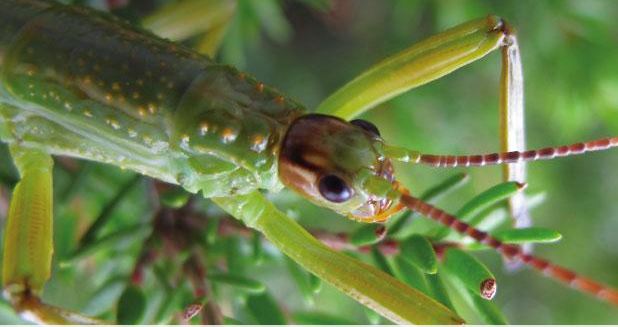
The Lord Howe insect has officially made a comeback in the world after being declared extinct by scientists. A new genetic analysis says that the Ball's Pyramid stick insects share the DNA of the museum specimens of the Lord Howe insect.
Three Ball's Pyramid insects were discovered by scientists in 2001 while climbing the Ball's pyramid, a rocky outcrop southeast of the Lord Howe Island. Another 24 of the same species were found the next year. Although the two species looked almost the same, genetic testing was required to prove that they were related.
The results prove that they indeed share DNA, even though the ancient Lord Howe insects have a flatter body, larger spines on their legs and a lighter brown coloring. However, their mitochondria are more than 99 percent identical.
The Lord Howe stick insects (Dryococelus australis) were nocturnal and flightless creatures that fed on tea trees and were common on Lord Howe Island in New South Wales, Australia. This was before black rats wiped out the entire species.
Now, they are back from the dead, bringing the speculations of scientists and biologists to fruition. Now, the conservation biologists are reportedly looking to reintroduce the long-lost species to its native habitat. "Now that we know that it is the original stick insect, there is a much stronger case for releasing it into the original habitat," says Sasha Mikheyev, evolutionary biologist and study co-author of the Okinawa Institute of Science and Technology Graduate University in Japan. The study was published in Current Biology, as reported by Science News.
There is still a big hurdle before introducing the re-born insects into the island as the black rats have to be eradicated first. The insects, also known as 'tree lobsters' have got a second chance at life and it is deemed essential to preserve them and their species.
Currently, 14,500 insects of this species have been bread at the Melbourne Zoo.
Check out the expedition by the Australian Museum to Ball's Pyramid, in order to retrieve 'Vanessa', a Lord Howe Stick Insect who joined the breeding program at Melbourne Zoo.









